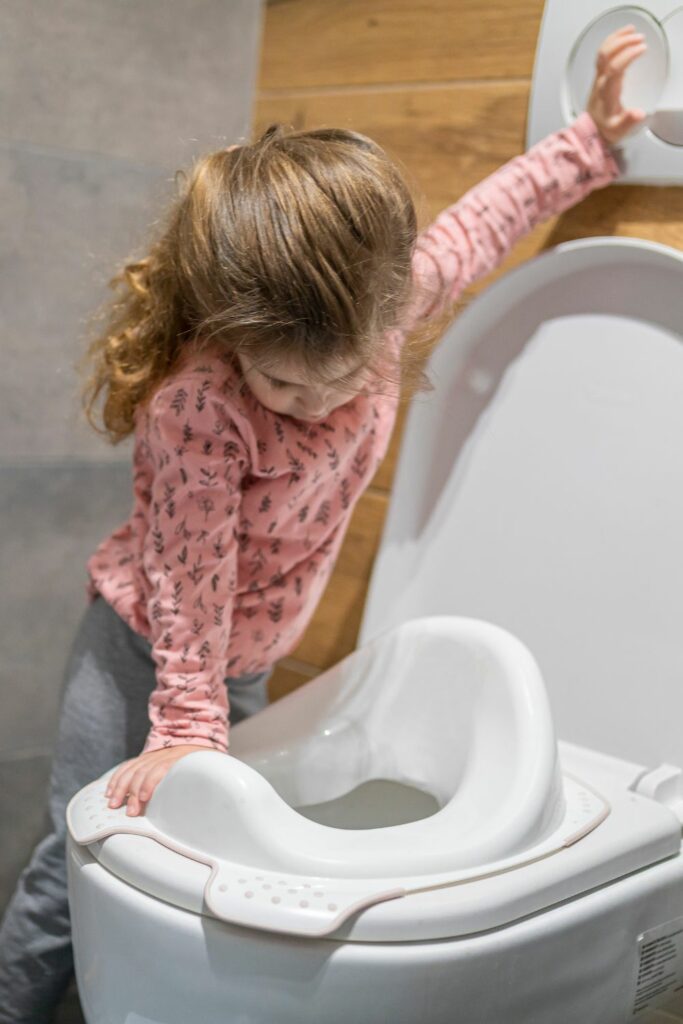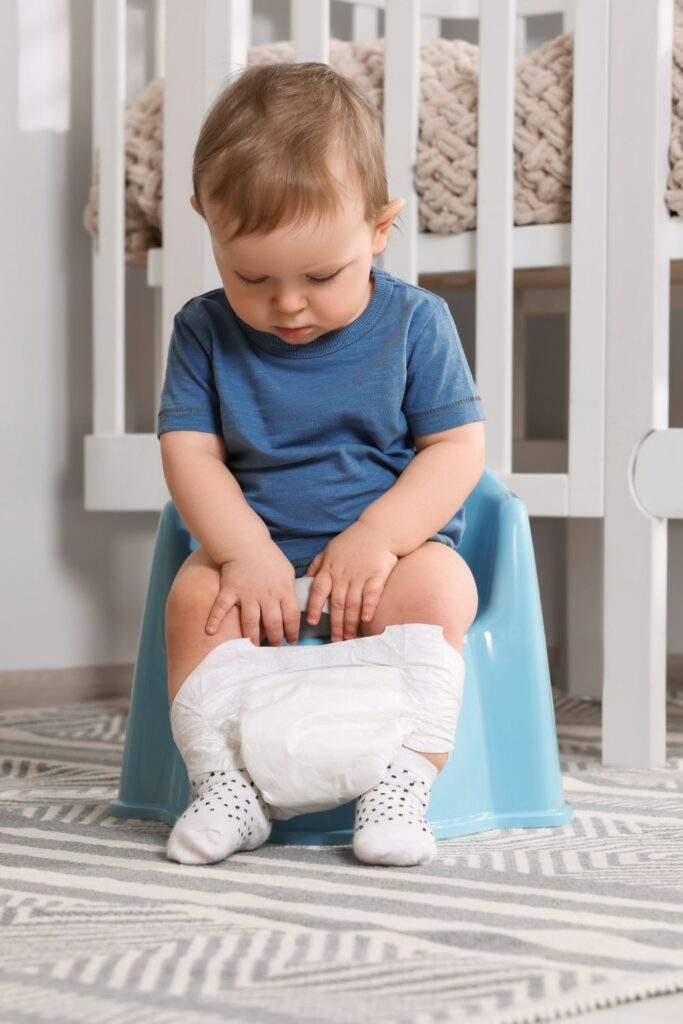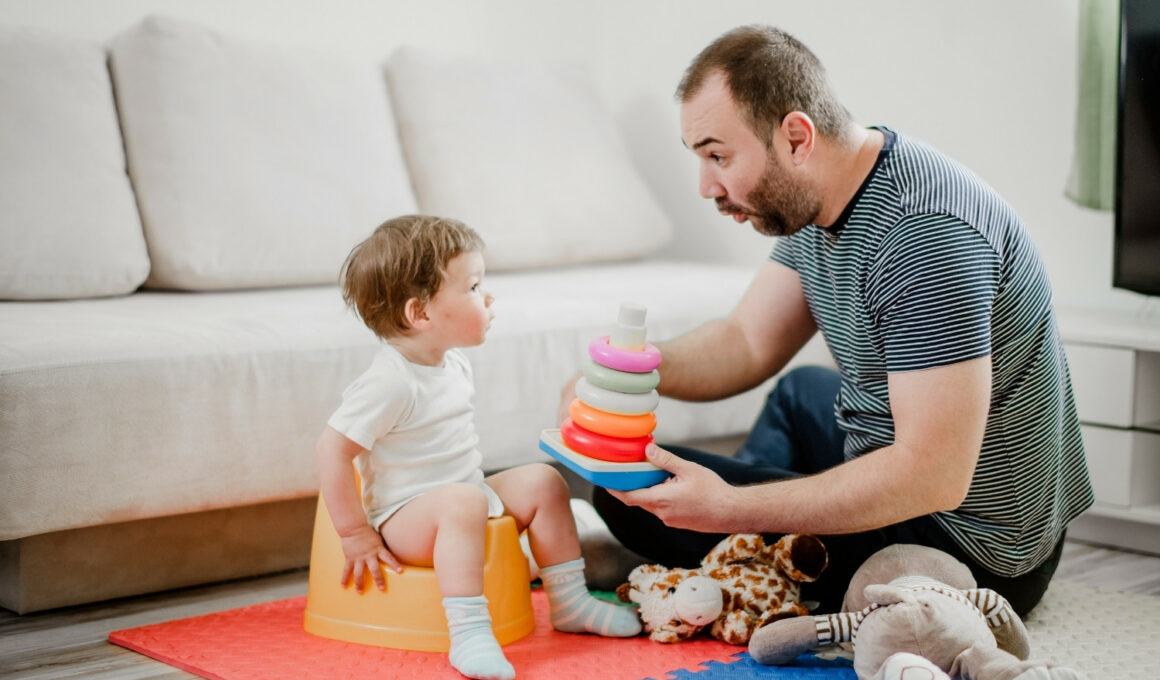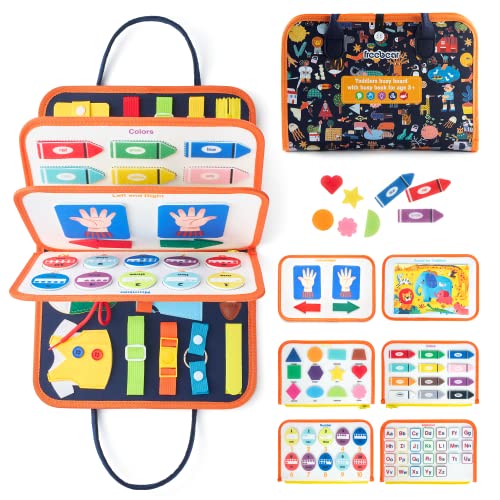In This Article Show
As a mum of three, I’ve navigated the winding road of parenting, from the first gummy smiles to the challenges of potty training. It’s a journey filled with unique experiences, each child bringing their own set of surprises.
Recognizing when your child is ready for potty training is more about observing and understanding their cues rather than circling a date on the calendar. Each child is different, and what worked for one may not be the magic formula for another.
In this post, we’ll explore the top five signs that suggest your child might be ready to transition from diapers to the potty. These insights come from personal experience and the collective wisdom of parenting communities.
5 Signs Your Child Is Ready to Start Potty Training
As you read, remember, that potty training is not a race. It’s a natural part of your child’s development, and the right time to start is unique to each child. Here’s to making the potty training process a positive experience for both you and your child!
1. Showing Interest in the Bathroom

One of the first glimmers that your child might be ready to start potty training is a budding curiosity about the bathroom and toilet. It’s like their little radar suddenly tunes into these previously uninteresting spaces in your home.
They might follow you into the bathroom, ask questions, or even express a desire to mimic what they see you doing.
Great deals to snatch for your little ones 🎉
This curiosity is a natural part of their learning process and a great sign that they’re beginning to understand where those bathroom-related activities belong.
2. Discomfort with Dirty Diapers
Another clear indicator that your child may be ready to start potty training is their growing discomfort with dirty diapers. This is not just about the icky feeling of a wet or soiled diaper, but it’s about them being bothered enough to want a change.
When they start to express unhappiness or irritation with a dirty diaper, it’s a sign they’re developing a dislike for the feeling of being unclean.
When your child starts to show signs of discomfort or even tells you that they have a dirty diaper, it’s an indication of their growing awareness and desire for cleanliness. This awareness is crucial for potty training, as it motivates them to seek alternatives to diapers.
3. Consistent Bowel Movements
A key sign that your child might be ready for potty training is the development of consistent bowel movements. Regularity in their bathroom habits is more than just a physical development; it indicates that their body is following a predictable pattern, which is essential for successful potty training.
When bowel movements become predictable, it’s easier for both you and your child to recognize the signs that it’s time to use the potty. This consistency is crucial for establishing a successful potty training routine.
4. Ability to Follow Simple Instructions
A pivotal sign that your child is ready for potty training is their ability to understand and follow simple instructions. This skill is essential because potty training involves a series of steps that your child needs to grasp and execute, from recognizing the urge to go to washing their hands afterward.
Being able to follow basic instructions like “Go to the bathroom,” “Pull down your pants,” or “Sit on the potty” indicates that your child can comprehend and act upon these directives.
This understanding is key to the potty training process, as it ensures that they can participate actively and learn the necessary steps involved in using the toilet.
5. Communicating the Need to Go

One of the most definitive signs that your child is ready for potty training is their ability to communicate the need to use the bathroom. This communication is crucial because it shows that they are not only aware of their body’s signals but also able to let you know about them in time.
The ability to communicate their needs is a big step in your child’s independence. For successful potty training, they need to be able to tell you or indicate in some way that they need to go, ideally before it’s too late. This skill reduces accidents and fosters a sense of control and autonomy in your child.













